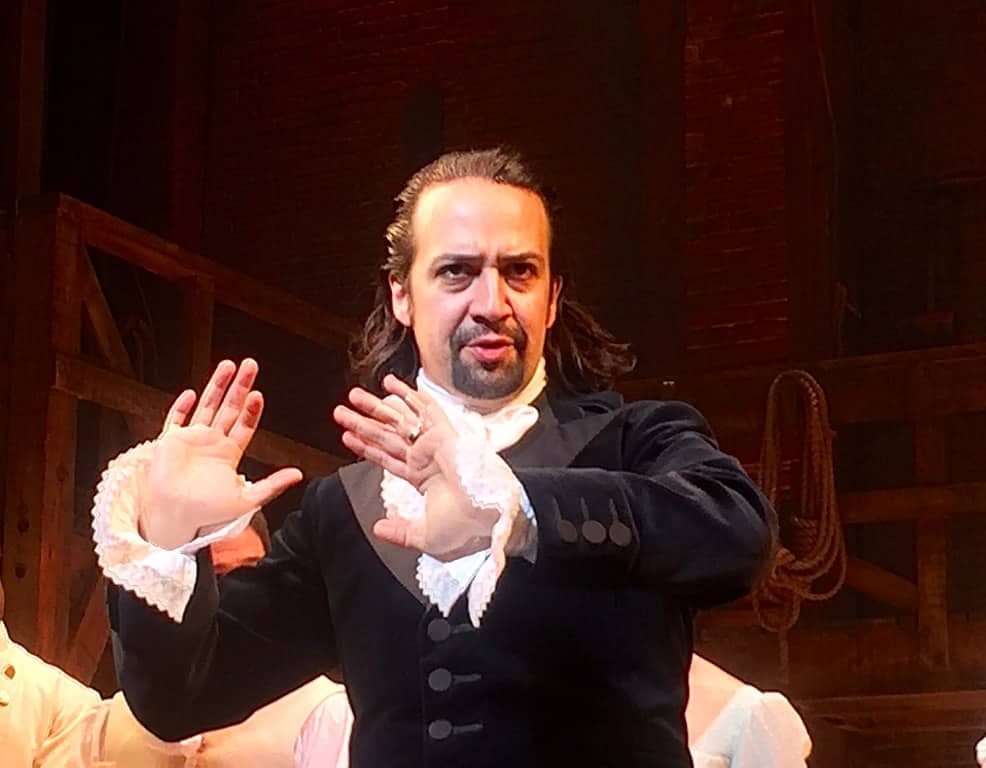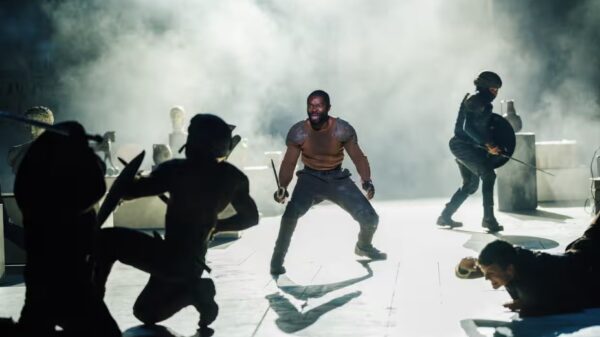Comment Editor Marino Unger-Verna on the central themes of love, death, and legacy in Lin-Manuel Miranda’s Hamilton, and how the ideals of its characters shape the show’s narrative.
Hamilton is a story about legacy. Almost every song in the musical mentions the concept at least briefly, and on a broader level the show itself could never have come about without the lasting memory of its central figures – though it certainly takes liberties in their on-stage depiction. There are two additional themes discussed at length in Hamilton, however, each as important as the first: love and death. On paper, these concepts seem to be diametrically opposed. In practice, however, Hamilton seems to argue that they are two sides of the same coin – a balance is required, lest disaster strike. Chasing death as a means to legacy is never the right way.
The Man with the Martyr Complex
Alexander Hamilton is a tumultuous, chaotic character. From the third song of the show, “My Shot,” it is clear that he is driven and opinionated, and will stop at nothing to achieve his goals. The theme of death is ever-present in the language he uses. He is ready to die for the revolution and he imagines death “so much it feels more like a memory.†This attitude makes sense – Alexander is an orphan, his father long dead and his mother dying of an illness, shortly after which his cousin hangs himself. He has been surrounded by death his entire life and expects it to come at any time. As a result, he is a “live fast, die young†type of character, who sees in the American Revolution a chance to do something worthwhile.

Alexander is obsessed with building his legacy and he sees death as a necessary means to that end. Time and again he says he is “more than willing to die†and is described as never being satisfied. As he falls deeper into his work, he begins neglecting his family and even begins an affair. He is often described as writing like he’s “running out of time†– in “Hurricane,” we get a brief glimpse into the man’s raging mind, described as the eye of a storm, and he releases the Reynolds Pamphlet immediately afterwards. Utterly rejecting love for the sake of his personal legacy and suffering as a consequence, he is described as Icarus, having flown too close to the sun.
“Blow Us Away” is the culmination of Alexander’s downfall. His son, “like his father but bolder,†is killed in a duel attempting to defend Alexander’s honour. He dies with Eliza singing the numbers one through nine to him in French, as they did when he was a child practising piano – an exact parallel to the countdown which occurs before every duel of the show. Love and death, again, prove to be closely intertwined.
Here Comes the General
 George Washington is a secondary character in Hamilton, but an important one. Larger than life, he wastes little time in warning Alexander that his views are ill-advised. “I was just like you when I was younger. Head full of fantasies, of dying like a martyr. Dying is easy, young man, living is harder.†For Washington, legacy is a secondary concern, something antithetical to Alexander’s world view.
In “History Has Its Eyes on You,” Washington tells Alexander that he will never have control over who lives, who dies, and who will tell his story. Washington knows that the eye of history is trained upon him, but he also knows that his legacy is not his to decide – he must simply be the best man he can be and let those who remain tell his tale.
Washington eventually decides not to renew his presidential candidacy, instead deciding to give the country a chance to adapt to a new leader. He embraces his love of America and its people, putting it before any thoughts of eventual glory, and thereby inadvertently sows the seeds of his lasting legacy.
The Damn Fool Who Shot HimÂ
Aaron Burr is similar to Alexander in many ways. Their paths cross more than almost any other two characters’ in Hamilton, and they both share similar goals. The differences between them lie in their ideologies and methods.
One of the first things Burr tells Alexander is he should “talk less, smile more, don’t let them know what you’re against or what you’re for.†Hearing this, Alexander counters: “If you stand for nothing, Burr, what’ll you fall for?†The answer, as it turns out, is Alexander himself. Burr eyes a more neutral path. He establishes that he is willing to wait and see which way the wind blows.

This balance is quickly thrown off-kilter as Alexander’s renown grows, however, and he begins to seize this opportunity in the second act. By the second-to-last song, “The World Was Wide Enough,” Burr has lost his balance entirely. While he is no longer prone to inaction, Burr has become impulsive to the same fault as Alexander. In the end, Alexander points his pistol to the sky, saying goodbye just as Washington did, as Burr shoots him in the chest.
Burr realises his mistake: he should never have allowed himself to become as obsessed with legacy as Hamilton was. In abandoning love to doggedly chase his own legacy, Burr unwittingly paints himself as the antagonist. Alexander would have met the same end, were it not for one woman.
The One Who Loved Him
Eliza is the character who lives to tell her husband’s story. Throughout Hamilton, she is portrayed as the character closest to love, and one of the only figures unconcerned with her own legacy. Time and again she tells Alexander to “look around at how lucky we are to be alive right now,†that him returning home alive “would be enough.†Eliza encourages him to embrace the now, rather than be preoccupied with death and glory.
When Alexander releases the Reynolds Pamphlet, Eliza removes herself from “the narrative.†This is the closest she comes to a rejection of love, but rightly so, as it comes after she is scorned by someone she trusted completely. In “Best of Wives and Best of Women,” she urges her husband to come back to bed rather than leave for his duel; one last attempt to dissuade him from his perilous course.
When Alexander dies, Eliza puts herself back in the narrative. She lives a long life, doing things not because they benefit her or her legacy, but because they are the right things to do. Ironically, she is the only character in Hamilton to see her own legacy, in its final moment – turning to the stage and gasping as she sees the audience. In embracing love and selflessness over obsessive drive, she achieves that which Alexander and Burr never could.
Without Eliza, Alexander would never have been redeemed. He chased legacy to the point of death, but no matter how hard he tried, he could never choose the story that would be told. That came down to those who were left and still loved him, those who praised his life’s work. In the end, Alexander’s story is not about him; it is about the people who lived to tell it.
Previously Editor-in-Chief of Roar News. Best Interview, SPANC 2022. Classics with English BA student, graduating Summer 2022. Perpetually caffeinated.

















